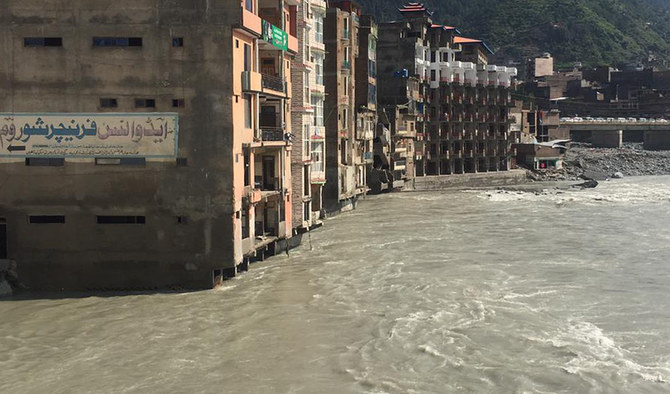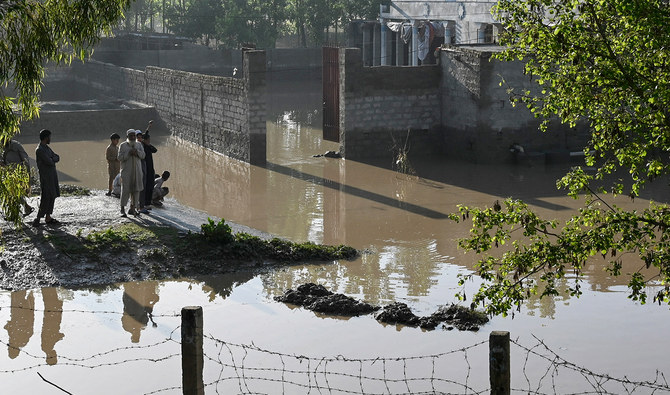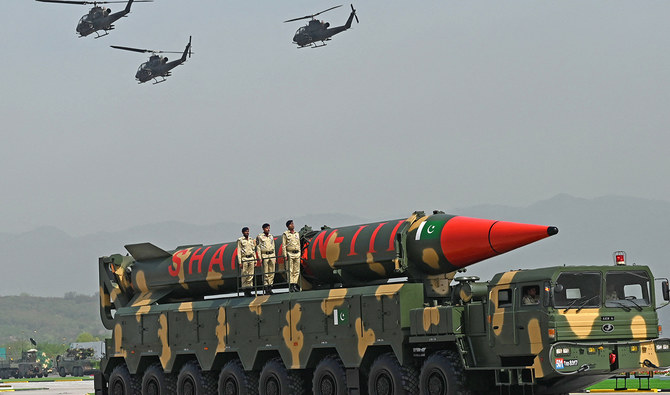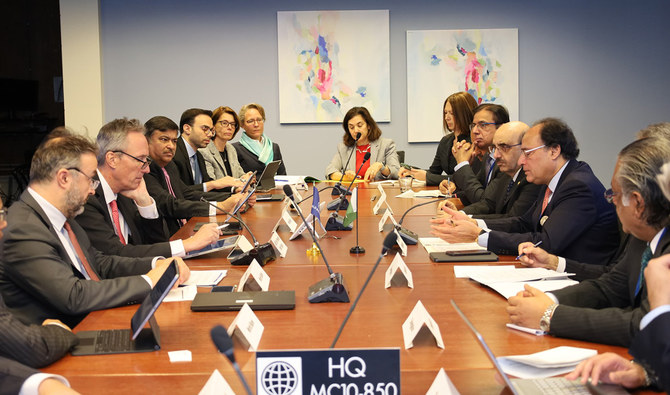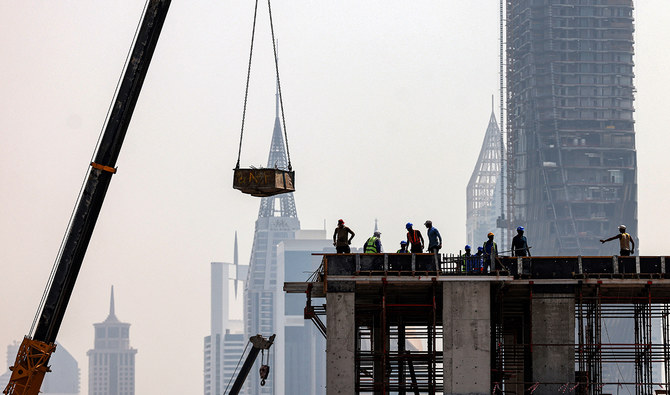PESHAWAR: Unprecedented floods and resurgence of militancy in Pakistan’s northwestern Khyber Pakhtunkhwa (KP) province have inflicted heavy losses on the tourism industry in the province, officials and businesspersons said, sounding alarm that it could take up to a year to revive the industry.
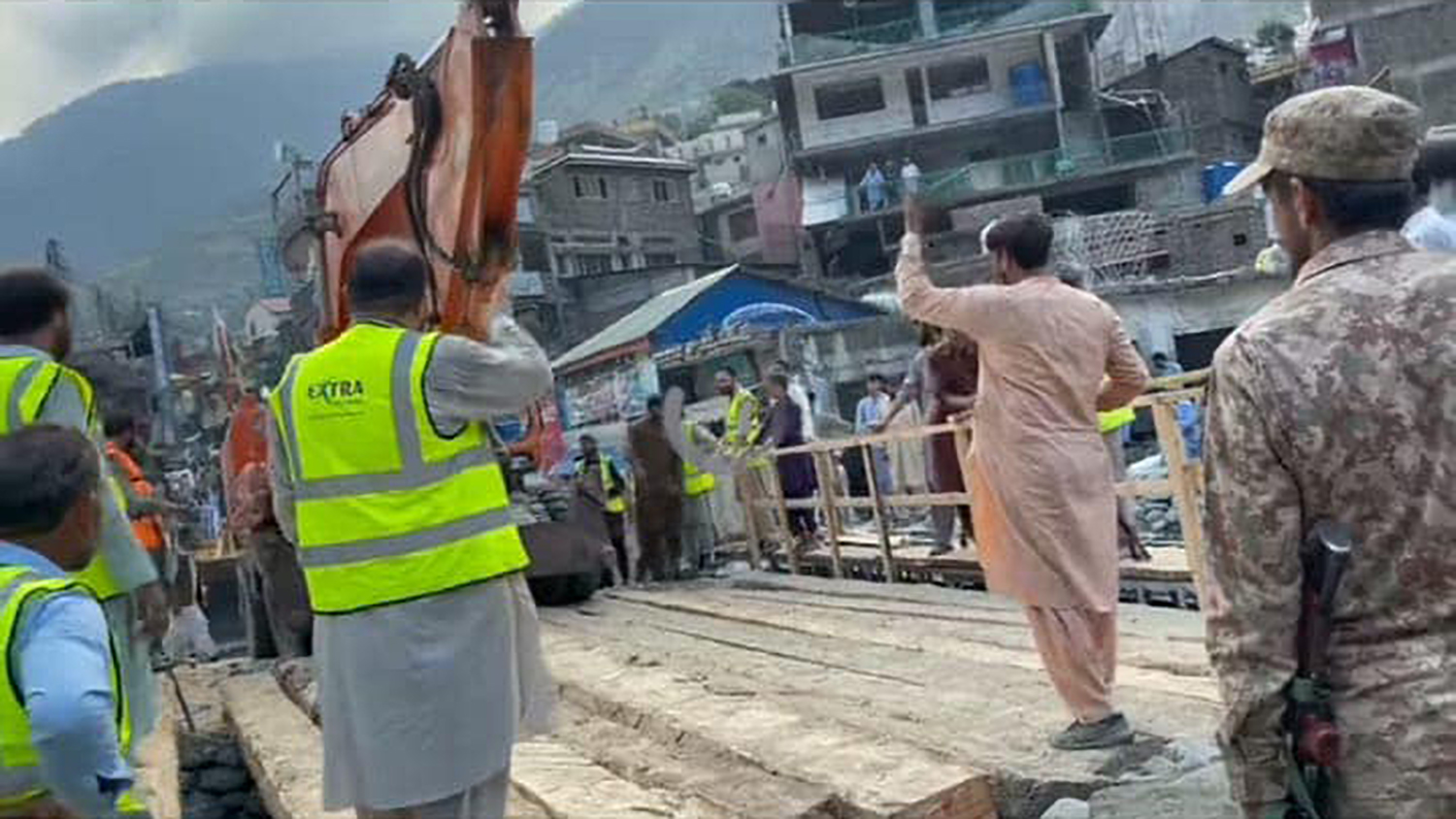
In this undated photo, rescue officials repair a bridge damaged in recent floods that affected infrastructure in Swat valley. (Photo courtesy: local administration)
Unusually heavy rains have killed almost 1,700 people across Pakistan and over 300 in KP since June 14. According to the government, over 33 million people have been affected by the floods and losses have been estimated at around $30 billion.
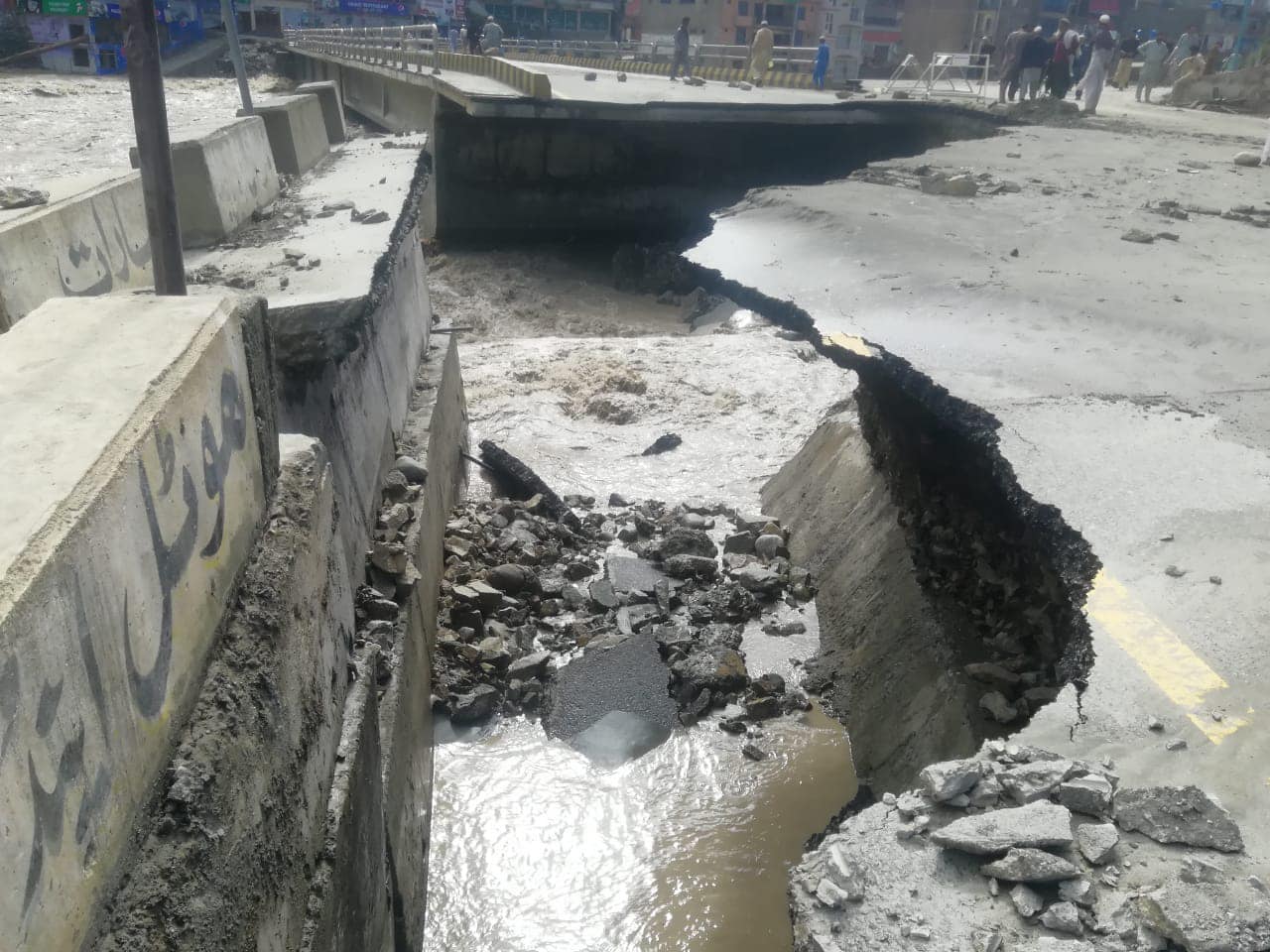
People walk past a bridge damaged in recent flash floods that hit Swat valley. (Photo courtesy: local administration)
Apart from the loss of lives, Pakistan’s infrastructure has been severely damaged with thousands of roads, bridges and houses swept away by the floods. Pakistan’s KP government earns revenue in billions each year as tourists flock to the northwestern province to enjoy various tourist resorts.
This year, however, the industry has taken a hit due to the floods.
“Tourism is not only scenic spots or hotels but its dimension is very different and expanded,” Muhammad Ali Syed, general manager of the KP Culture and Tourism Authority, told Arab News.
“Markets, handicrafts, fruit and vegetable shops, roadside kiosks and other businesses come within the ambit of tourism,” he added. “So, most of the roads and hotels have been washed away, and it will take a year to bring it to a pre-floods position.”

Rehabilitation work underway on bridge damaged in recent floods that battered parts of Swat valley. (Photo courtesy: local administration)
Peak tourist season in KP usually starts off in June and lasts till November each year. However, devastating floods across the country this year meant visitors were not able to visit various tourist spots across the province.
Syed said tourists were unable to visit the scenic Kalam Valley in Swat due to floods. He said tourists were unable to visit Kalam, a scenic valley in Swat, after the natural calamity because the roads leading to other tourist spots such as Gabin Jabba, Madyan, Bahrin, Utror, Matiltan, Pishmal and Mankial have been washed away.
“Tourism is considered the backbone of KP’s economy but it has been shattered now,” Syed lamented. “A comprehensive survey to assess the actual magnitude of financial losses caused to tourism is underway but I’m sure those (losses) are in the billions.”
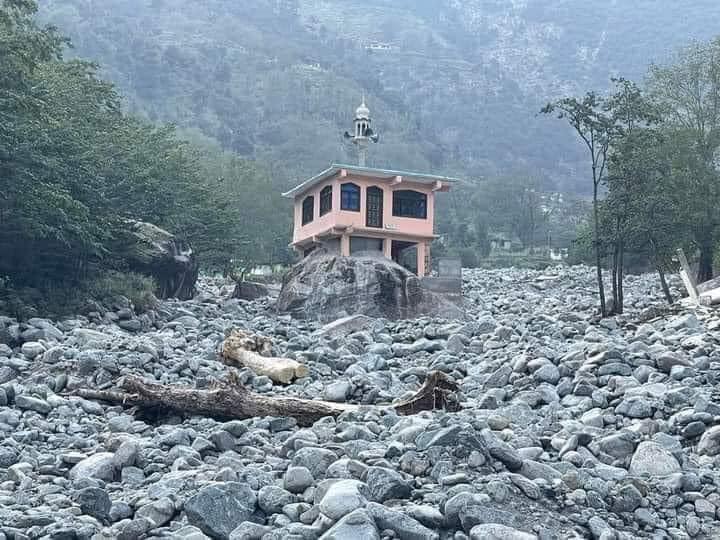
Parts of a mosque are intact in Kalam, a tourist spot in Swat, while the nearby buildings turned into rubble when devastating floods hit Swat valley. (Photo courtesy: Zahid Khan, president of the All Swat Hotel Association)
A large number of fish were not found in the area after dozens of trout fish farms and hatcheries in tourist sports were shattered, he added.
Saad Khan, a spokesperson of the KP Tourism Authority, told Arab News that 6,337,244 tourists, including foreigners, visited scenic spots in the province from August 2021 to August 2022.
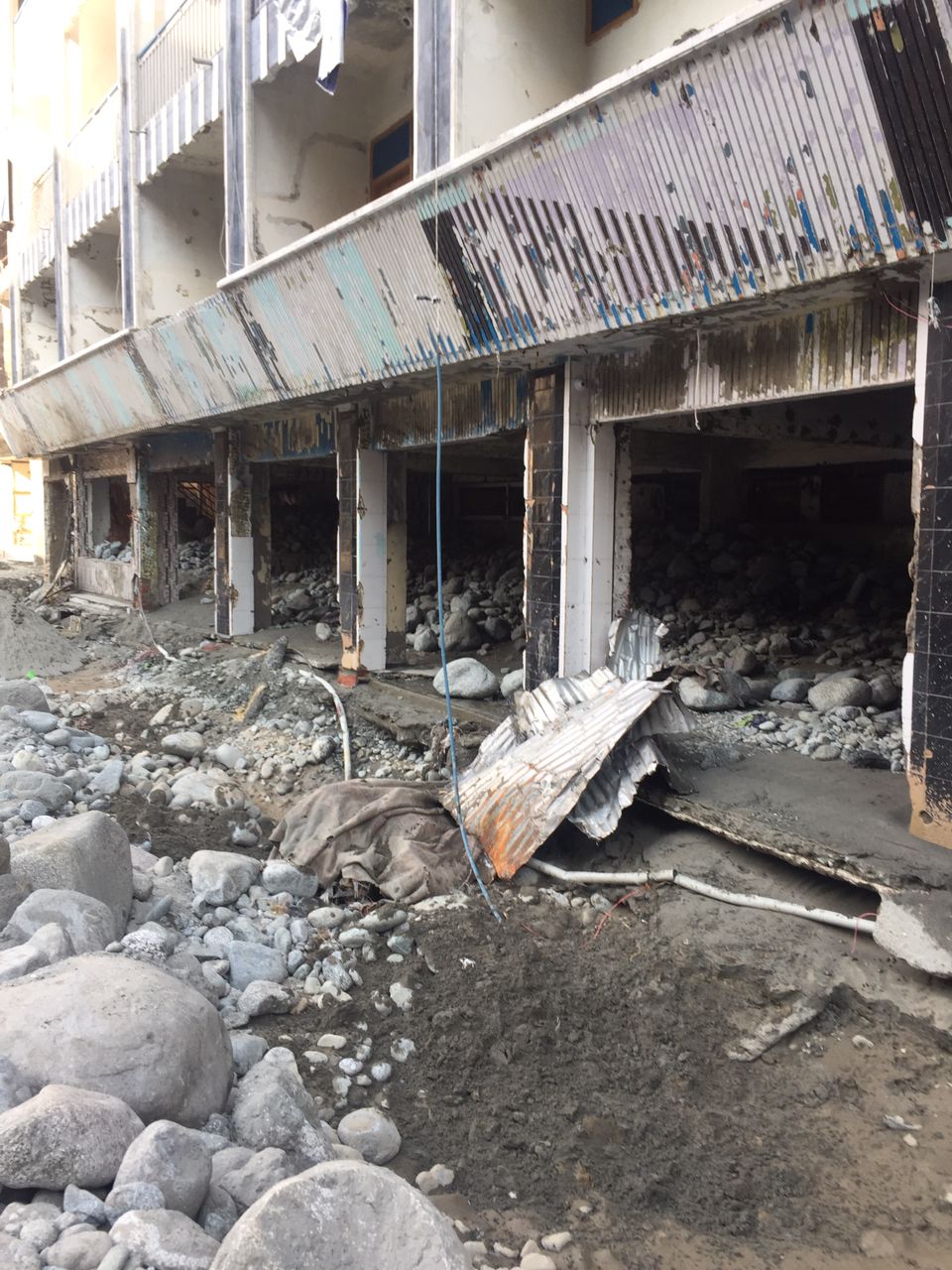
In this undated photo, a building presents a deserted look after horrific floods hit Swat valley. (Photo courtesy: Zahid Khan, president of the All Swat Hotel Association)
According to figures released by the tourism authority, the sector generated a total revenue of nearly Rs 51 billion from August 2021 to August 2022.
However, he said next year could prove to be a challenging one for the province’s tourism sector in terms of revenue generation due to the damaged infrastructure.
Zahid Khan, president of the All Swat Hotel Association, told Arab News that as per rough estimates, almost 50,000 people are directly or indirectly associated with the tourism business. He said recent floods had left all such people jobless for the last two months.
He said floods had completely damaged an estimated 50 hotels and another 150 restaurants in the Swat valley alone, inflicting roughly Rs 25 billion in losses.
Khan said there were very few tourists now as people did not want to risk their lives in the backdrop of the natural calamity and a resurgence of militancy and target killings in the area.
He said another Rs 70 billion in losses was suffered by tourism-related businesses.

Construction work is underway to rebuild damaged buildings after floods hit Swat valley. (Photo courtesy: Zahid Khan, president of the All Swat Hotel Association)
Khan accused the government of harassing hotel owners by claiming that they had built hotels in contravention of laws. He said the government’s claims are unjustified because the hotels and restaurants were built several decades ago, during the Wali Swat era in 1969.
He said the government should allow people to rebuild their hotels damaged by the floods. Khan added that the district administration has not allowed people to start rehabilitation work on the pretext of encroachment.
“We don’t want any favor from the government but allow us to rebuild our hotels to earn a livelihood,” he said. “If they (the government) don’t allow us then they should compensate us to build on alternative places,” Khan added.
However, Saad Khan said tourism would once again thrive in the province, adding the provincial government had approved the implementation of three Integrated Tourism Zones one week ago. He said these zones were aimed at exploiting new tourist sites to lure more visitors.
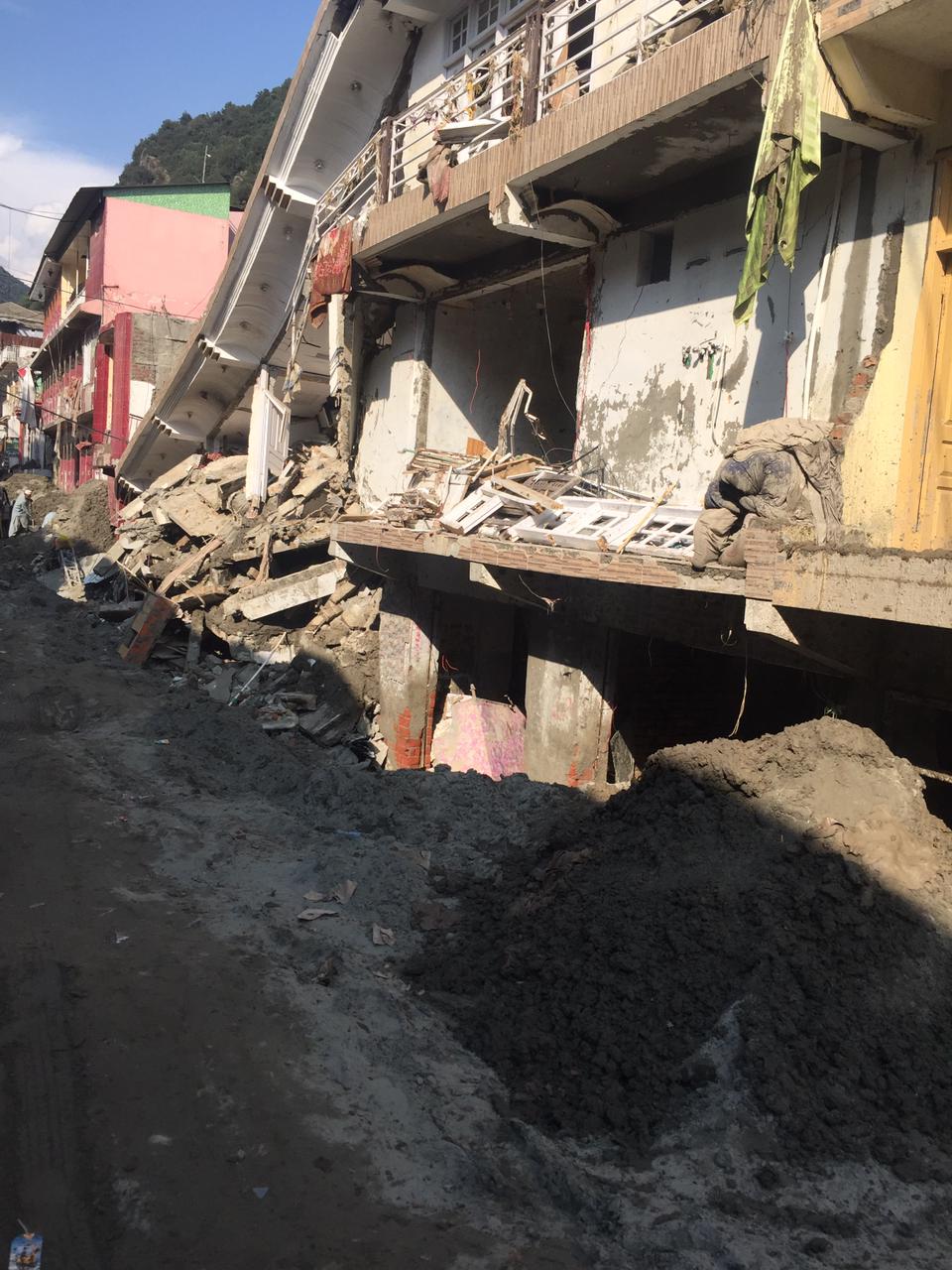
A building presents a deserted look after horrific floods hit Swat valley. (Photo courtesy: Zahid Khan, president of the All Swat Hotel Association)
All three projects at Madaklasht in Chitral, Ganool in Mansehra and Mankial in Swat would be developed at a cost of Rs. 10.17 billion, he said, adding they would be developed within two years.
The proposed ITZ projects would offer recreational facilities such as winter sports, lodging and restaurants, which would promote local culture, Saad Khan added.
However, Zahid Khan was not too optimistic about the future.
“I fear the tourism sector will take two years almost to stand on its own feet because roads, bridges and hotels are totally in shambles,” he said.



